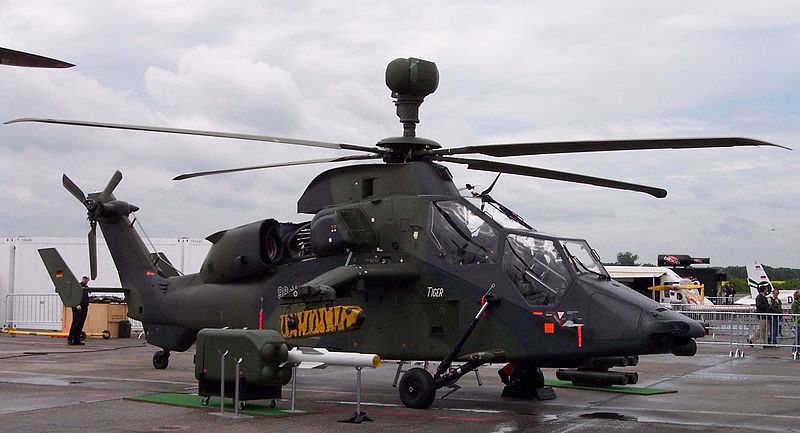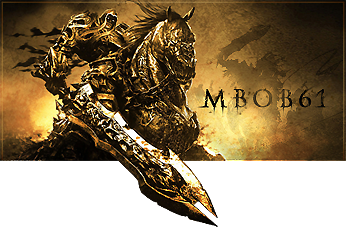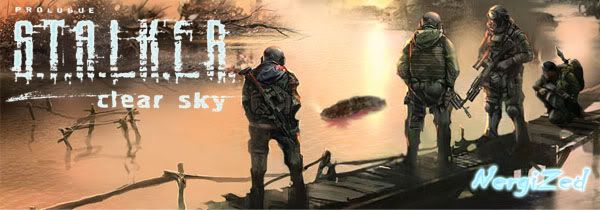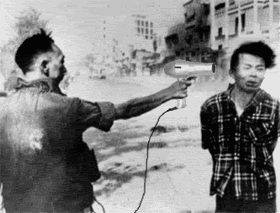Anyhow, here are the aircraft on offer:
The AH-64D Apache Longbow is probably the world's best-known attack helicopter, and is the aircraft of choice when the U.S. Army goes tank-hunting. Featuring a large radar that allows it to engage targets with its 8km-range Hellfire II ATGMs from behind cover, it is optimised for a extremely-low-level 'pop-up attack' mission, but also carries Hydra unguided rocket pods and a 30mm cannon with 1000 rounds of ammunition which give it functionality against targets such as fortifications, light vehicles and infantry. Advanced sensors and communications equipment allow it to operate in all weathers at any time of day or night, and the latest upgrades even give some the ability to command UAVs. It has been extensively used in Iraq and Afghanistan, and has mostly given a good account of itself, destroying over 500 enemy tanks in the Gulf Wars, though it lacks heavy armour and several have been damaged by ground fire. Boron armour plates protect the pilot and gunner from rounds of up to 23mm in calibre, though the rest of the airframe is not armoured and can only withstand machine-gun projectiles.
Images:
High-res:
http://upload.wikimedia.org/wikipedia/comm...8/AH-64_CM2.jpg
The Mil Mi-24PN 'Hind-F' is the latest version of the venerable Hind attack helicopter which became so well-known in Afghanistan, and broke several world records for airspeed and certain other attributes when first introduced. It's unique for its ability to act as a low-capacity troop transport, carrying eight passengers in addition to the pilot and gunner, and carries a plethora of other weapons including a turreted 12.7mm four-barrel gatling gun, two fixed 23mm cannon, and a heavy load of other external stores typically including two or four pods carrying 20 unguided rockets, Igla/Vympel R-73 (AA-11 'Archer') missile pods which target enemy helicopters and in the latter case jets, and 9K114 Shturm ('AT-6 'Spiral-C') ATGMs with a range of up to 7km, or 9M120 Ataka-V (AT-9 'Spiral-2') ATGMs with a range of 1-6km, but can also carry bombs, 350mm unguided rockets, or all sorts of other things. It's affectionately known as 'Leutashiy tank' or flying tank by pilots for its heavy armour and impressive ability to take damage, including surviving missile hits and rounds of up to 20mm in most areas of the fuselage, and became known as the 'Khadzurka' or gravedigger by Taliban fighters in the Afghanistan conflict because it could not only kill you but make a hole big enough to bury you in while it did so. It has rather unspectacular manoeuvrability however, is not very well suited for night operations thanks to high infra-red signatures and relatively poor sighting equipment of its own (this has been somewhat remedied in the PN version, but not completely) and the design is ageing significantly, having first appeared in the early 1970's.
Images:


The Mil Mi-28 Night Hunter 'Havoc' is a attack helicopter based off the Mi-24 but heavily optimised for the anti-tank role. It carries a 30mm turreted gun, 9M120 Ataka-V (AT-9 'Spiral-2') ATGMs with a range of 1-6km, and the option to fit unguided rocket pods, bombs, or Igla /Vympel R-73 (AA-11 'Archer') AAMs. It lacks the ability to carry troops (though it does have a compartment with just enough room to squeeze three people inside - this is intended to allow for rescue of downed aircrews), but is considerably faster and more manoeuvrable. The Mi-28N won the Russian Army's competition to find a helicopter to replace the ageing Mi-24s for the anti-tank and specifically night-attack roles. It is quite heavily armoured in most areas, with the cockpit module having particularly extensive protection against cannon rounds. A large radome allows enhanced target-detection and weapons guidance, and sufficient thermal and other sighting equipment is installed to allow effective operation in all weathers, day or night.
Images:


The Kamov Ka-50 Black Shark/Werewolf is a modern Russian attack helicopter produced by the Kamov design bureau. Featuring the bureau's penchant for coaxial rotors, thus eliminating the need for a tail rotor, it is highly agile and carries an impressive weapons layout; standard armament is two six-missile pods of powerful 9K121 Vikhr (AT-16 'Scallion') ATGMs with a range of up to 10km, and two pods of twenty 80mm unguided rockets, or one pod of rockets and one Vympel R-73 (AA-11 'Archer') heat-seeking air-to-air missile which can even be used on enemy fighter jets. Its fixed gun system is an unusually powerful 30mm cannon (the 2A42, effectively the same gun as that on the BMP-2 IFV) in a semi-rigid mount; despite the fact that this cannot be turned very far in any direction on its own, the aircraft's manoeuvrability is such that the weapons control system can manoeuvre the entire Ka-50 to point at a target in order to fire the gun as fast as the turret on an AH-64 or an Mi-28 can turn. The gun has selectable rates of fire, and typically carries 500 rounds of ammunition, with rounds alternating between HE-frag and AP. In addition, one of the weapons stations can also be mounted with a twin 23mm gun pod with 940 rounds of ammunition if extra gun firepower is required. Electronic countermeasures pods are mounted on the wingtips.
The aircraft is moderately armoured; the pilot's cabin is fully protected against 23mm gunfire, and the cockpit glass can withstand 12.7mm machine-gun rounds, but the rest of the Ka-50 has minimal armoured protection. However, the lack of a tail rotor considerably improves survivability as the aircraft won't go into a terminal spin if it is damaged, as has been proven a weak point on Hinds, Apaches and other designs.
However, the imaging systems on the stock Ka-50, while incorporating are not really good enough to enable the helicopter to be properly effective at night, and so it is used as a day attack helicopter only, with the Mi-28N filling the night attack role. The upgraded Ka-50N, however, incorporates a dedicated night-sighting pod including FLIR, millimeter-wave radar and an electro-optical targeting system; however, this pod this takes up one of the wing weapons stations, meaning the Ka-50N has less room for weapons, but can operate effectively in any conditions.
The Ka-50's excellent manoeuvrability has allowed it to be used with high effectiveness in mountainous terrain in Chechnya. However, as it has only a single seat for a crewmember, the pilot also has to operate the weapons while flying, and so there have been concerns that this work overload may prevent it form being as capable in combat as a two-seater design.
Images:


The Kamov Ka-52 Alligator 'Hokum-B' is an upgrade to the Ka-50 which widens the nose in order to fit a second crewmember to operate the weapons, eliminating the work overload problems encountered in the original Ka-50. The second crewmember also enables the aircraft to perform additional tasks, and the Ka-52 has been fitted with upgraded communications equipment to serve as an airborne command post for other Ka-50s or helicopter forces. This extra capacity comes at the cost of a slightly higher radar signature, a small loss to manoeuvrability and speed, and reduced the vision field of the pilot to one side thanks to the seating arrangement being an unusual side-by-side configuration. However, it retains the turreted sighting equipment from the original Ka-50, enabling the weapons loadout and performance to stay unchanged, and also gets the Ka-50N's night-attack package as standard, now in a turret on the nose and not requiring weapons space. 12 Ka-52s are being purchased by the Russian Army as command helicopters and the rather less interesting role of a Ka-50 trainer.
The Ka-52 gains my vote for its modern design, extraordinary aerial performance, enhanced day-night all-weather capacity over the base model, and especially powerful weapons which can now be better utilised thanks to a dedicated gunner. The Ka-50 is good, but in my opinion this is beyond question better.
Images:


The Eurocopter Tiger is a highly modern European twin-crew attack helicopter designed for medium-weight fire support and armed reconnaissance. It can mount a turreted 30mm cannon, HOT3 or the new PARS 3 LR ATGMs with ranges of 75-4000m and 500-6000m (8000m for upgraded version) respectively, and unguided rocket pods. They are currently used by Germany and France for medium attack and Australia for armed reconnaissance (the Australian ARH version mounts Hellfire II ATGMs instead of the European missiles, which have a range of up to 8000m). Tigers also carry pods of four Stinger missiles for close-in defence against aircraft, mostly helicopters. They are also very fast and agile, and are considerably lighter than most other helicopters on this list, but also have a lower capacity for external stores of weapons.
Images:


The Bell AH-1Z Viper is the United States Marine Corps' new primary attack helicopter, the latest version of the venerable AH-1 Cobra that saw action as far back as Vietnam. The Viper features upgraded targeting equipment, a new four-blade rotor giving enhanced payload capacity, and is fitted with a tri-barrel rotary 20mm gun with 750 rounds of ammunition, and a reasonable capacity for external stores including Hydra 70mm rocket pods, AIM-9 Sidewinder heatseekers for close-in air defence, and Hellfire II missiles with up to 8km range. It has FLIR and other sighting systems allowing it to operate day or night and in adverse weather, and also can be fitted with the AH-64D's Longbow radar, though at the cost of a wingtip weapons station. It's not as heavy and has a slightly lower stores capacity when compared to the AH-64, but it's considerably more rugged, features folding rotor blades for use on carriers and is also faster.
Images:


Lastly, the AgustaWestland A129 Mangusta is the other main European entry into the attack helicopter market. Developed by Italy in the 1980s, they can carry Hellfire IIs (max 8km range), TOW (max 3,750m range) and the Israeli SPIKE-ER (800-8000m range) in addition to their fixed armament of one triple-barrelled rotary 20mm gun with 500 rounds of ammunition, though this is not always fitted. The standard mix of 70/50mm unguided rockets or a 12.7mm machine gun pod can be fitted, in addition to Mistral or Stinger missiles, though these are only really suitable for use against other helicopters due to the fact that they remain essentially unchanged from the MANPADS version. The latest version of the A129, an export version for the Turkish Army, gains a mast-mounted radar and uses Turkish-developed UMATS ATGMs (these are similar to Hellfire IIs in performance).
Images:


Edit, the rest of the aircraft are now added with updated info. Also, my apologies, quite right Waris; the Hind is indeed very fast for a helicopter. However, it's still much less manoeuvrable than the rest of the aircraft here, even with the shorter winglets and more powerful engines introduced in the upgrade to the PN version.
Edit, changed Apache Longbow image to one with the radome and is a better picture overall.
Edited by CommanderJB, 20 June 2008 - 08:43.



















